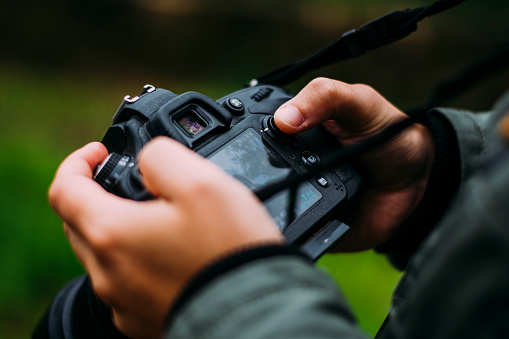
Photography education for NDIS participants.
As an Occupation Therapist for the past 15 years, I have worked with thousands of people with various physical, cognitive and psychosocial abilities. My aim as an Occupational Therapist has always been to increase my clients’ abilities and/or access to do the things that are enjoyable or important to them.
Photography has been a passion of mine since learning how to shoot and develop film in high school. This passion lead to me officially launching my business in 2018 and I now specialise in newborn and family photography.
Photography is something that many people enjoy and I find it is a wonderful art-form which encourages gratitude and mindfulness. Practicing photography can have many benefits, particularly on mental health and well-being. Unfortunately not everyone is able to access mainstream photography education and tuition.
I believe that photography, and it’s therapeutic benefits should be accessible to all.
That’s why I’ve started providing face to face private lessons to NDIS participants throughout Adelaide.
Check out the short video below to learn more about the services I offer.
Occupational Therapy for NDIS Participants who are passionate about photography.
I also offer a 10 week course where Occupational Therapy is provided through the meaningful occupation of photography. This is ideal for participants who are interested in photography and can be a great option if they have had difficulties engaging in other forms of therapy.
The 10 week courses are run in line with school terms and each week the participant will receive a personalised two hour one on one session with me. I am an Occupational Therapist with 15 years experience and I’m also a Professional Photographer with my own photography business.
The course is tailored to the participant and focuses on their areas of interests and aligns with the goals in their NDIS plan. This course aims to build the participant’s capacity and confidence and improve their social and community participation.
The weekly two hour sessions are conducted in the community where practicable, or from the participants home.
During the 10 week course the participant will learn camera and editing skills and explore various genres of photography. There will also be opportunities for them to enter competitions, exhibit their work, and join local photography clubs.
Task modification, energy conservation techniques, improved ergonomics and manual handling techniques will be covered in the sessions as required.
The participant does not need to own a camera or computer. These can be provided to the participant for use during the sessions, or the focus can be on utilising their phone’s camera.
By using an activity that is enjoyable to the participant (photography), I am able to engage the client in therapy and help achieve their goals. Some case studies with previous participants include:
- A participant who has cerebral palsy and one-sided weakness dislikes walking and rarely uses their weak upper limb. When attending the Adelaide Zoo to take photos of the animals they frequently used both upper limbs to stabilise the camera and they walked 6km. Photography is helping them develop and maintain their fine motor and gross motor skills.
- A participant with an intellectual disability has set up their own business and we organised for them to take photos at a local market where they were able to make some money from the photos they took. This micro-enterprise gives the participant purpose and increases their confidence. It also increases their community engagement and is developing their social skills to interact with members of the public.
- A participant with multiple sclerosis has difficulties leaving the house due to fatigue but enjoys the creative side of photography. We have set up a small studio in their home where they are doing toy photography and entering online photography competitions. This type of photography allows them to self-pace whilst pursuing their passion and creativity within their physical limitations. Being part of the online community provides social interaction and more purpose for their photography.
- A participant with Autism and ADHD enjoys videography but has difficulties with planning skills and social interactions. This course has supported him to develop his planning skills, improve the flexibility of his thinking, and improve his social skills whilst creating videos showcasing services provided by local businesses.
Please contact me on 0422 896 108 or [email protected] to find out more, or to organise a complimentary 30 minute meet and greet to explore whether this course would be a good fit.
I am at capacity for Term 2, but contact me to join the waiting list for Term 3 2024.
I look forward to hearing from you soon,
Tammy.
